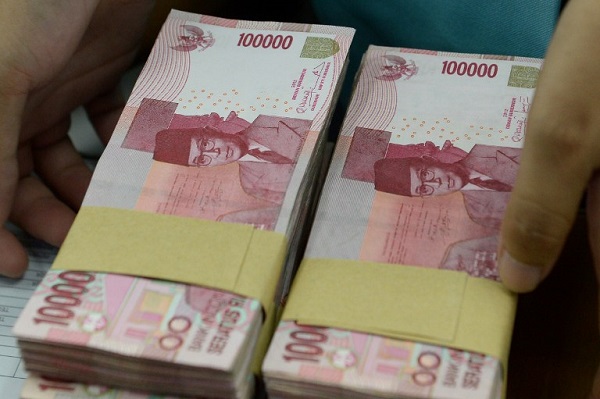Indonesia hikes rates again to prop up slumping rupiah

JAKARTA – Indonesia hiked interest rates again on Thursday in a bid to shield the slumping rupiah from an emerging market selloff with the unit at levels last seen during the late-nineties Asian financial crisis.
Bank Indonesia raised its key rate by 25 basis points to 5.75 percent – its fifth rise since May – after the government said it was taking other measures to protect the weak currency.
The move comes two weeks before the world’s financial elite gather in the holiday island Bali for the International Monetary Fund and World Bank’s annual meetings where currencies and trade tensions are expected to dominate talks.
Bank Indonesia’s decision also followed the US central bank on Wednesday raising rates for the third time this year, as it cited an increasingly strong economy and jobs market.
Investors have been dumping emerging market currencies, including the rupiah, as rising US rates prompt them to flock to dollar-denominated assets in search of better returns.
There are growing concerns about a US-China trade war, and emerging markets have also been battered recently by fears of contagion from crises in Turkey, Argentina and South Africa as a stronger dollar makes it harder for them to repay debts.
The rupiah is down about 10 percent this year, trading at 14,914 against the dollar on Thursday.
Indonesia’s currency has not been this weak since it was embroiled in a region-wide financial crisis that sparked economic ruin and street protests that led to the downfall of late dictator Suharto in 1998.
“This (rate) decision is to control the current account deficit and to maintain the attractiveness of the domestic market in the midst of global uncertainty,” central bank governor Perry Warjiyo told reporters.
Indonesia has said it would slap higher taxes on imports and delay or restructure import-dependent infrastructure projects as part of a bid to tackle a growing deficit in the current account, a broad measure of its trade with the rest of the world.
“This is not the best policy, but for the short term we are checking… imports,” Finance minister Sri Mulyani told a business conference Thursday.
A weakening rupiah makes it more expensive to buy imported goods or repay debts in other currencies.
“The authorities are worried about currency weakness because of the relatively high level of foreign currency debt in the country,” Gareth Leather at research house Capital Economics said in a report after the rate hike. /kga